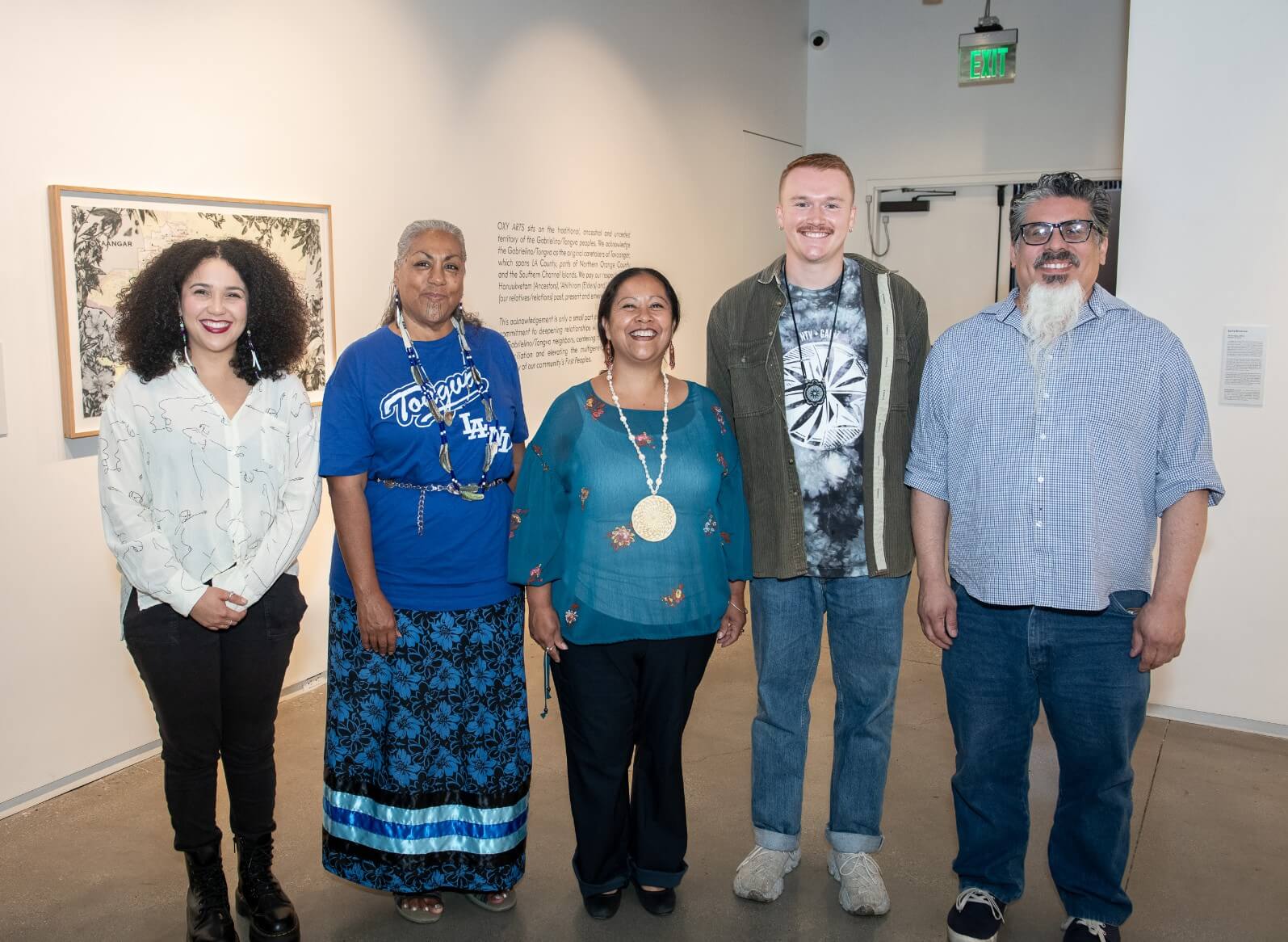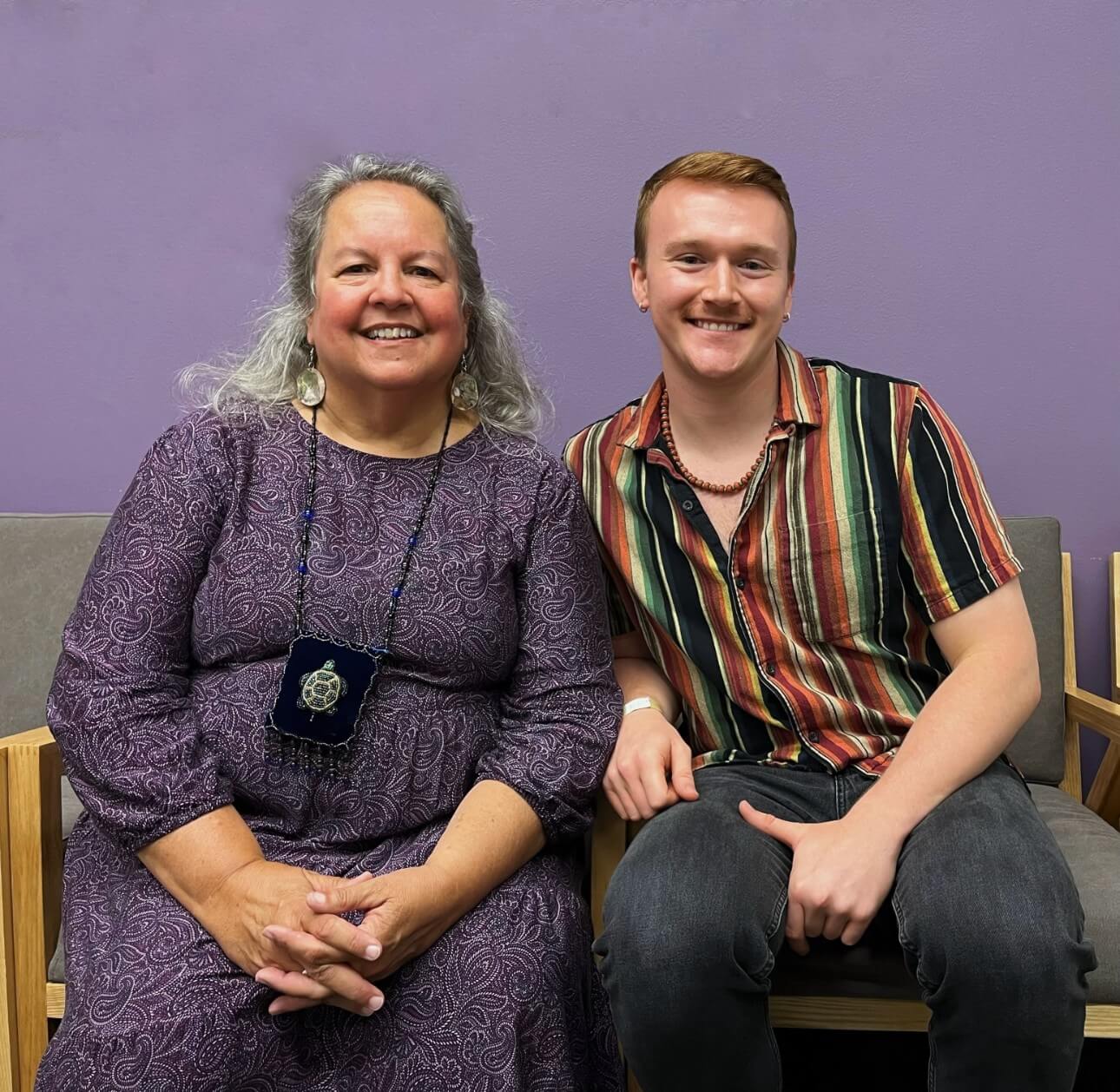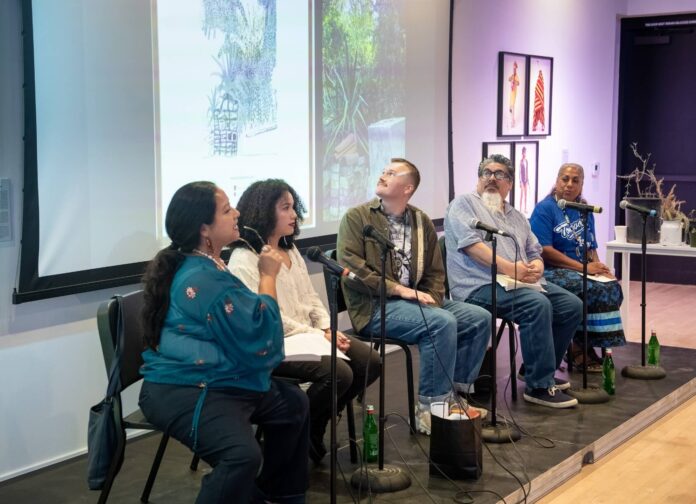Occidental’s Community Book Program selected the book “Braiding Sweetgrass: indigenous Wisdom, Scientific Knowledge, and the Teachings of Plants” by Robin Wall Kimmerer for its 2023-2024 reading. Feb. 6 Occidental hosted its fourth annual Community Book Program event with speakers including President Harry Elam, author Kimmerer and student moderator Bryce Lewis-Smith ‘20. According to Elam, this year’s selection had significance since it brought about immersive events that were centered around themes of the book.
“The depth and the scope of her book is reflected in the Community Book Committee’s Programming, including the plant walks led by professors Gretchen North and Jocelyn Pedersen last fall, and the Responsibility and Reciprocal Relationships with the Land panel at OXY Arts,” Elam said. “And, of course, today’s event.”
According to Associate Dean for Curricular Affairs and Computer Science Professor Kathryn Leonard, the Community Book Program is designed to connect to the different aspects of the college.
“The Community Book Program began in 2020 to bring our community together despite geographic separation,” Leonard said. “We aligned the program to connect to the mission of the college and its four cornerstones: excellence, equity, community and service.
Sabrina Willison, the associate director of orientation and student development and member of the Community Book Program, said Occidental regularly engages in conversations regarding equity and community.

“Oxy really strives to do more than just check a box when we’re recognizing and honoring indigenous tribes of this land, and it’s a step in the right direction,” Willison said. “I know we’re going to continue to grow.”
Gretchen North, a professor of biology, said that she has required “Braiding Sweetgrass” in her classes ever since COVID-19 since she could not take her students on nature walks. A few of her students recommended the book to her a few years ago, according to North.
“We couldn’t get outside and we couldn’t do nature walks,” North said. “In the absence of doing the thing that I really always do in my plant classes — which is to have the students go out and really see plants and touch them and smell them — ‘Braiding Sweetgrass’ led us through it.”
North said she recommended Kimmerer’s book to the Occidental Book Program.
“[‘Braiding Sweetgrass’] reminds you that we do have a responsibility to treat the land in the way that it should be treated and the way that it has treated us,” North said. “It’s always sustained us.”
Lewis-Smith is a member of the Citizen Potawatomi Nation and an alumnus of the class of 2020. According to Lewis-Smith, during his time at Occidental, he worked on the native pollinator garden, planting native plants to create a habit for the native pollinators of the area. Now, he said he works as an Environmental Justice Associate with Better World Group.
“I work on six different projects addressing renewable energy, climate crisis, water rights and indigenous environmental justice all along the West Coast,” Lewis-Smith said.

Kimmerer discussed her engagement with both Western science around plants, as well as indigenous knowledge. According to Kimmerer, she feels privileged to know about both. Kimmerer said indigenous ways of knowing are often neglected in her field, so she is always trying to make connections between indigenous knowledge and research devoted to environmental science.
“It feels that I have a responsibility to share with others. So that was the real impetus behind ‘Braiding Sweetgrass.’ That and a love of plants. I just can’t help myself, I love to tell plant stories,” Kimmerer said. “Plants are our teachers. They’re our oldest teachers, and we ought to be paying attention to them. Western science tends to learn about plants, and in indigenous science, we learn from them.”
Lewis-Smith moderated the questions that students had asked during the event.
“I think that it’s really important for Oxy as a liberal arts institution to be looking at environmental science with different lenses of indigenous knowledge and scientific knowledge, bringing them together to get a holistic view of the natural world and our kin,” Lewis-Smith said.
Kimmerer said that “Braiding Sweetgrass” is just a stepping point to get more people engaged in indigenous knowledge.
“Pay attention to the world,” Kimmerer said. “Paying attention to the world leads us to gratitude, which leads us to reciprocity and can also lead us to grief for this beautiful world that we are destroying.”
Contact Francine Ghazarian at ghazarian@oxy.edu
![]()































